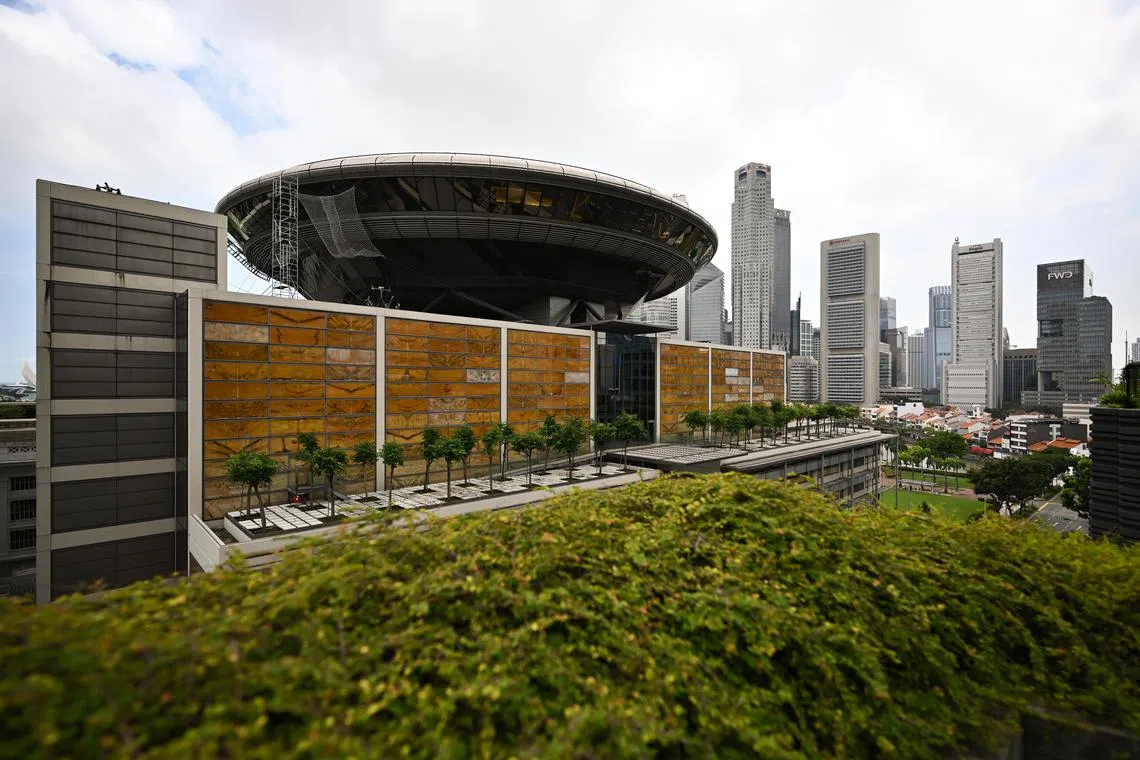Death row inmates must get Court of Appeal’s permission before filing post-appeal applications
Sign up now: Get ST's newsletters delivered to your inbox

After getting the Court of Appeal’s permission, the inmate’s application will be brought before a panel of three or more judges.
PHOTO: ST FILE
Follow topic:
SINGAPORE - Death row inmates will soon have to seek permission from the Court of Appeal before filing further applications to delay their executions after they have exhausted their appeals.
This comes after the Post-Appeal Applications in Capital Cases Bill,
After getting the Court of Appeal’s permission, the inmate’s application will be brought before a panel of three or more judges.
Senior Parliamentary Secretary for Law Rahayu Mahzam told Parliament on Tuesday that to get permission to file the application, the prisoner will be required to state, among other things, the grounds of the challenge and the reasons for not filing it earlier.
The court, in deciding whether to give its permission or not, will consider factors including whether the application has a reasonable prospect of success and whether it is based on evidence or arguments that could not have been presented before the court earlier.
In supporting the Bill, Leader of the Opposition Pritam Singh (Aljunied GRC) highlighted that new material in the form of evidence and legal arguments are not prohibited by the Bill.
“While this Bill may appear to some as putting a spanner in the works for lawyers who wish to file post-appeal applications in capital cases, in my view, it serves to regulate the process better and does not close off defences not heard at trial,” he said.
Mr Singh asked for clarification on a quote by a Ministry of Law spokesman published in The Straits Times in November that said: “The proposed amendments will clearly set out the process for such applications, and the court will have discretion to allow challenges even if they do not comply with this process.”
Ms Rahayu said the intention is that where the conditions have not been satisfied, permission should generally not be granted, but the court will exercise considerable care because there is finality. “We don’t want to rule out the possibility. The framework sets out what the court will consider and it’s likely to be extremely rare for the court to go beyond this,” she added.
Mr Louis Ng (Nee Soon GRC) asked what a reasonable prospect of success entails, to which Ms Rahayu responded that the Court of Appeal will consider the merits of the intended application. However, the court is not required to conduct a full determination of the merits when deciding whether to grant its permission.
Ms Hany Soh (Marsiling-Yew Tee GRC) asked if the Legal Assistance Scheme for Capital Offences, which offers free legal representation to those facing capital charges at trial and on appeal, will be extended to cover post-appeal applications.
Ms Rahayu said such extensions will have to be “carefully studied in consultation with relevant stakeholders before a decision is taken”.
In response to Mr Zhulkarnain Abdul Rahim (Chua Chu Kang GRC), who asked if more could be done to raise awareness of Singapore’s approach towards capital punishment on the international front, Ms Rahayu said: “Criticisms of Singapore’s approach are often based on misconceptions and inaccurate facts.
“Singapore actively engages in international fora, such as the United Nations as well as bilaterally to address misconceptions and explain our approach. We will continue to engage and raise awareness.”
CORRECTION NOTE: This article has been edited for clarity.


